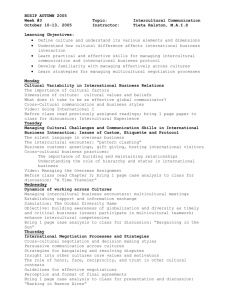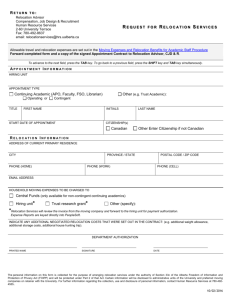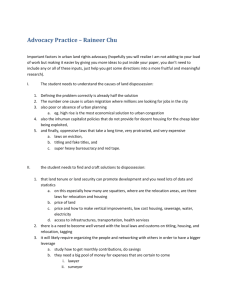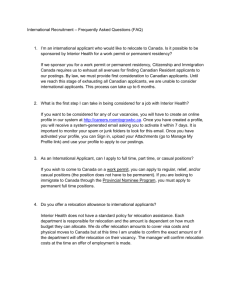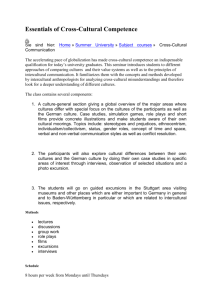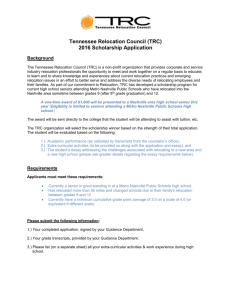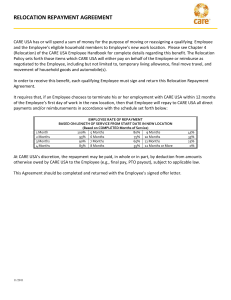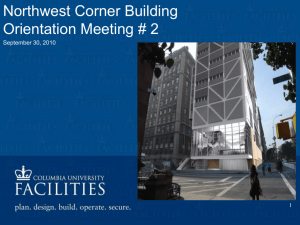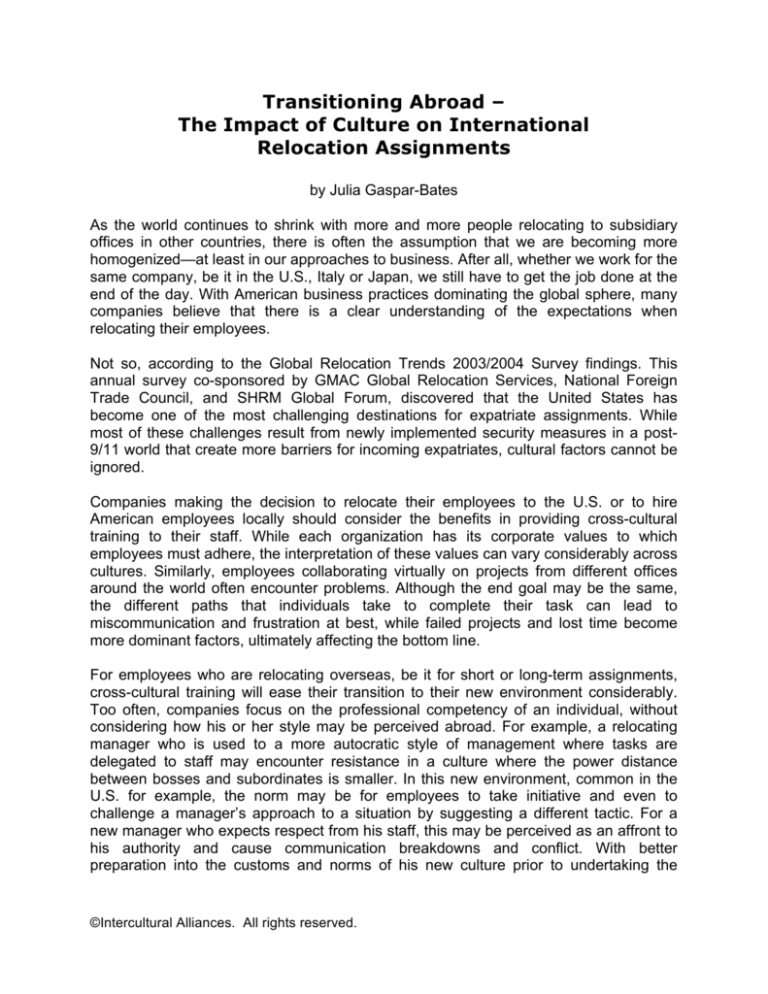
Transitioning Abroad –
The Impact of Culture on International
Relocation Assignments
by Julia Gaspar-Bates
As the world continues to shrink with more and more people relocating to subsidiary
offices in other countries, there is often the assumption that we are becoming more
homogenized—at least in our approaches to business. After all, whether we work for the
same company, be it in the U.S., Italy or Japan, we still have to get the job done at the
end of the day. With American business practices dominating the global sphere, many
companies believe that there is a clear understanding of the expectations when
relocating their employees.
Not so, according to the Global Relocation Trends 2003/2004 Survey findings. This
annual survey co-sponsored by GMAC Global Relocation Services, National Foreign
Trade Council, and SHRM Global Forum, discovered that the United States has
become one of the most challenging destinations for expatriate assignments. While
most of these challenges result from newly implemented security measures in a post9/11 world that create more barriers for incoming expatriates, cultural factors cannot be
ignored.
Companies making the decision to relocate their employees to the U.S. or to hire
American employees locally should consider the benefits in providing cross-cultural
training to their staff. While each organization has its corporate values to which
employees must adhere, the interpretation of these values can vary considerably across
cultures. Similarly, employees collaborating virtually on projects from different offices
around the world often encounter problems. Although the end goal may be the same,
the different paths that individuals take to complete their task can lead to
miscommunication and frustration at best, while failed projects and lost time become
more dominant factors, ultimately affecting the bottom line.
For employees who are relocating overseas, be it for short or long-term assignments,
cross-cultural training will ease their transition to their new environment considerably.
Too often, companies focus on the professional competency of an individual, without
considering how his or her style may be perceived abroad. For example, a relocating
manager who is used to a more autocratic style of management where tasks are
delegated to staff may encounter resistance in a culture where the power distance
between bosses and subordinates is smaller. In this new environment, common in the
U.S. for example, the norm may be for employees to take initiative and even to
challenge a manager’s approach to a situation by suggesting a different tactic. For a
new manager who expects respect from his staff, this may be perceived as an affront to
his authority and cause communication breakdowns and conflict. With better
preparation into the customs and norms of his new culture prior to undertaking the
©Intercultural Alliances. All rights reserved.
assignment, he would be more skilled at realigning his expectations and adapting his
style used in his home country to meet the local standards.
In the Global Relocation Trends Survey, 60% of the of the 134 Human Resource
professionals who responded to the survey indicated that their companies provided
formal cross-cultural training before relocation assignments occurred and 73%
remarked that the trainings were of great or high value in preparing their candidates for
their move overseas. From a cultural standpoint, the primary challenges they
encountered with the relocation process included finding employees with strong
intercultural understanding (55%) who could adjust to their new environment (42%).
The main factors that caused assignment failure were partner dissatisfaction, concerns,
inability to adapt, and poor job performance.
The psychological factors that affect an international relocation are enormous. While
there may be initial excitement about the adventure of living overseas and the
professional opportunities the move presents, without adequate cultural preparation,
this can wear off quickly as the relocated expatriate and his/her family encounter
isolation in their new home if they have not developed the skills necessary to adapt to
their new environment. This can cause severe stress and may lead to depression in
extreme circumstances, both of which may impede the employee’s performance at
work.
With this in mind, when selecting a viable candidate to relocate overseas, companies
should assess both the professional attributes as well as the cultural adaptability. Will
the candidate’s work style and communication patterns be well-suited to the new
environment? What works at home may not necessarily be the case abroad and these
are important considerations prior to making a final decision. Additionally, providing
adequate training to cope with the culture shock one typically encounters when living
and working in a new environment and to provide strategies for assimilation into the
new culture are crucial to ensuring a successful assignment. Likewise, training is
recommended for any employees who will be working either face-to-face or virtually with
foreign colleagues to provide a deeper understanding of how culture impacts work
styles and to gain more perspective into their own values, beliefs, and assumptions of
how things should be done. The more companies are able to acknowledge the effects
culture has on our day-to-day work environment and to address the challenges posed
by these cultural differences, the more competent they will become in the global
marketplace.
Julia Gaspar-Bates is co-founder and President of Intercultural Alliances, a crosscultural
training
and
consulting
firm.
She
can
be
reached
at
jgaspar@interculturalalliances.com.
©Intercultural Alliances. All rights reserved.



